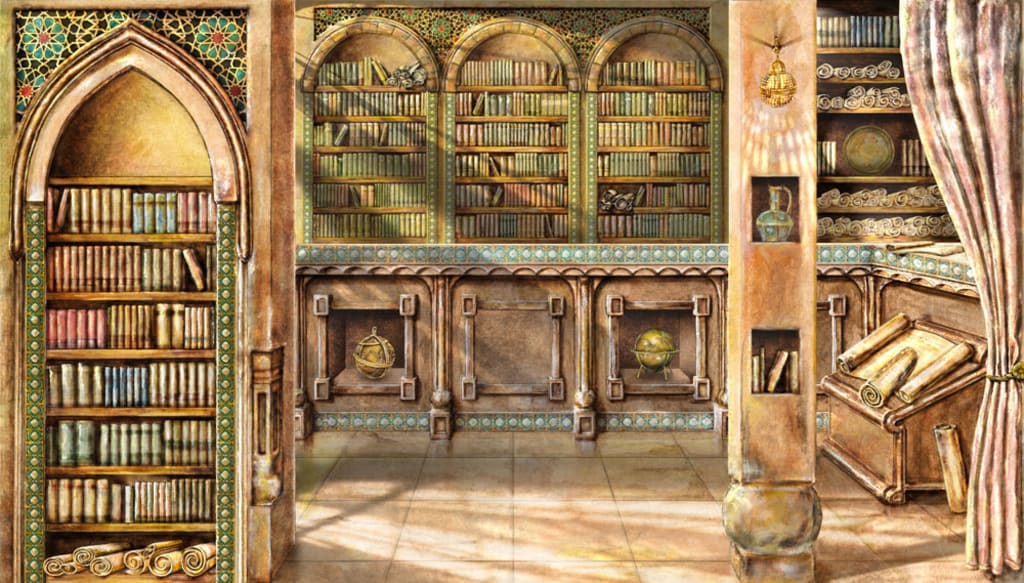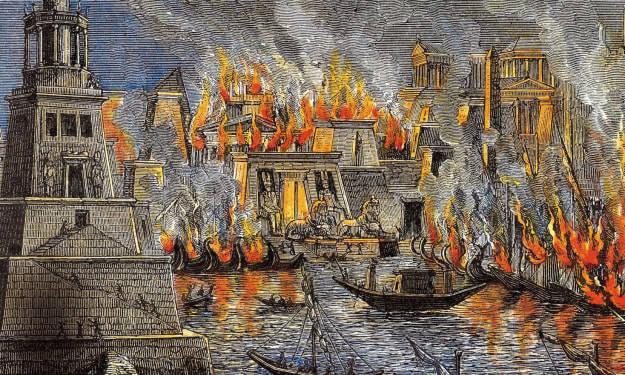The House of Wisdom: A Beacon of Knowledge Lost
How far set back are we?

During the Islamic Golden Age, the House of Wisdom in Baghdad stood as a shining symbol of intellectual enlightenment. This renowned institution served as a gathering place for scholars, scientists, philosophers, and translators from diverse backgrounds, fostering a vibrant exchange of ideas and knowledge. However, the House of Wisdom and its vast collection of ancient literature suffered a tragic fate, leaving behind a void in our understanding of the ancient world.
The House of Wisdom, established in the 8th century CE during the Abbasid Caliphate, became a center of learning that transcended cultural and religious boundaries. Under the patronage of the Abbasid rulers, the House of Wisdom amassed an extensive collection of books and manuscripts from across the known world. It served as a hub for translating and preserving ancient Greek, Persian, and Indian texts, contributing to the transmission of knowledge from antiquity to the Islamic world.
Scholars within the House of Wisdom engaged in a wide range of disciplines, including mathematics, astronomy, medicine, philosophy, and literature. They embarked on ambitious translation projects, making significant contributions to fields such as mathematics with the introduction of algebra and the preservation of works by ancient Greek mathematicians like Euclid and Archimedes.
The tragic fate of the House of Wisdom unfolded during the Mongol invasion of Baghdad in the 13th century. The Mongols, under the leadership of Hulagu Khan, sacked the city, bringing an end to the Abbasid Caliphate. The House of Wisdom, along with its priceless collection of manuscripts, suffered extensive destruction and loss. Scholars were killed, manuscripts were burnt, and the intellectual legacy of the institution was shattered.
The consequences of the destruction of the House of Wisdom were profound. Countless ancient texts, including works by renowned scholars like Aristotle, Plato, and Hippocrates, were lost forever. The setback to scientific, philosophical, and cultural advancements was immeasurable, as the knowledge held within those texts was integral to the development of various disciplines.
The loss of the House of Wisdom also meant the dispersal of the accumulated wisdom of multiple civilizations. The works translated and preserved within its walls served as a bridge between ancient Greek, Persian, Indian, and Arabic knowledge, fostering cross-cultural understanding and innovation. The destruction of this hub of intellectual activity severed those connections and impeded the advancement of knowledge in subsequent centuries.
The destruction of the House of Wisdom is a reminder of the importance of protecting knowledge and learning. It is also a reminder of the fragility of civilization. When violence and destruction strike, it is the knowledge and learning of previous generations that is often the first thing to be lost.
Despite the devastating loss, fragments of the House of Wisdom's legacy remain. Some works managed to survive through copies and translations made by scholars in other parts of the Islamic world. Efforts have been made to reconstruct and revive the intellectual spirit of the House of Wisdom, albeit on a smaller scale. Initiatives like the contemporary House of Wisdom in Dubai seek to rekindle the spirit of knowledge-sharing and foster cultural exchange in the modern era.
The House of Wisdom serves as a poignant reminder of the fragility of human knowledge and the lasting impact of its destruction. It stands as a testament to the importance of preserving and safeguarding ancient literature, recognizing its inherent value as a bridge between civilizations and a wellspring of wisdom. As we mourn the loss of the House of Wisdom, we must also reaffirm our commitment to nurturing and protecting the intellectual heritage of all cultures, ensuring that the beacon of knowledge continues to guide us toward a brighter future.
About the Creator
Huzaifa Mehmood
I am not much of a writer just an engineer who is fond of a lot of things and likes to write about them. I love reading and literature. Bit of a romantic and a big history enthusiast. I like cars, F1 and racing as much as i like cooking.
Enjoyed the story? Support the Creator.
Subscribe for free to receive all their stories in your feed. You could also pledge your support or give them a one-off tip, letting them know you appreciate their work.






Comments
There are no comments for this story
Be the first to respond and start the conversation.